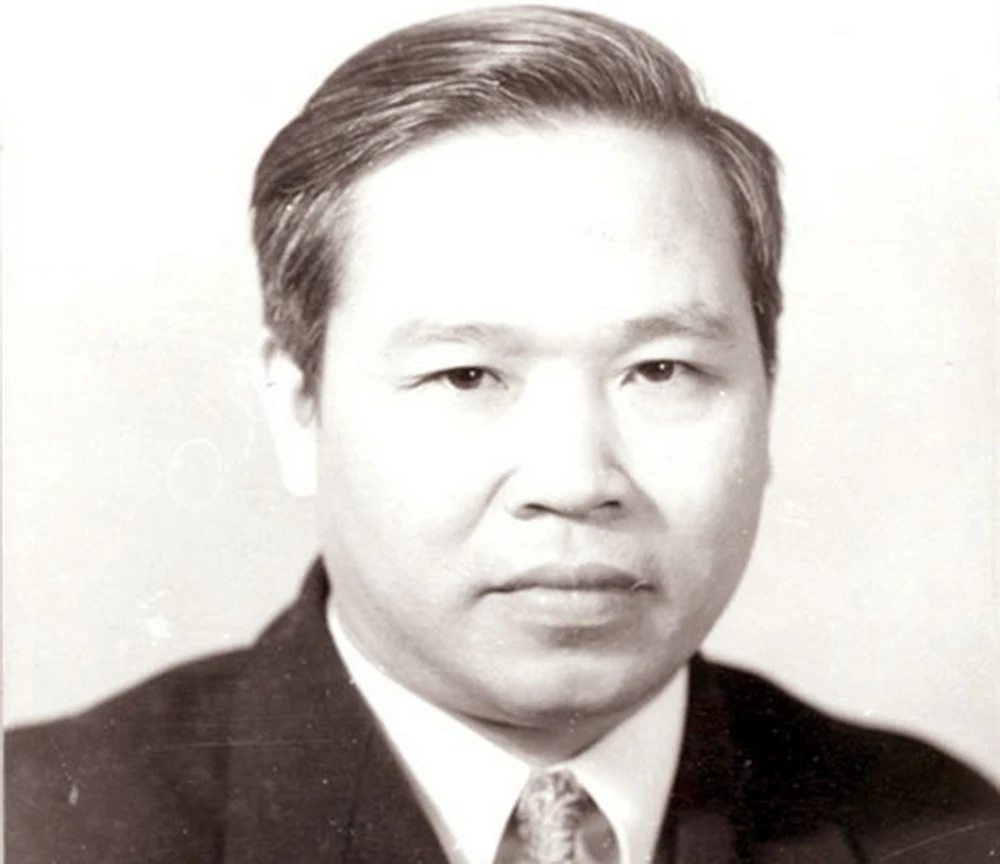
Poet Huy Can is an author with a prolific and continuous creative career in the ranks of poets and writers in 20th century Vietnamese poetry.
He is one of the typical poets, successful in both the New Poetry movement and Revolutionary poetry, with a huge poetic legacy, making great contributions to the country's literature.
Great contribution to Vietnamese revolution and poetry
Poet Huy Can's real name is Cu Huy Can, born on May 31, 1919, in An Phu commune, Duc Tho district, Ha Tinh province, in a poor peasant family. As a child, Huy Can studied in his hometown, then went to Hue to study, and passed the Baccalaureate exam. During his time studying in Hue, Huy Can wrote a number of literary commentaries, sent them to the Trang An newspaper, and also published a number of poems.
In 1939, he went to Hanoi to study at the Agricultural College and also spent more time writing poetry. In 1940, he published the poetry collection “Sacred Fire” and immediately became a unique poetic phenomenon in the contemporary literary life. He became one of the leading names of the New Poetry movement.
In 1942, Huy Can participated in secret activities in the Viet Minh Front, assigned to mobilize intellectuals and youth in Hanoi. In August 1945, he was sent to attend the Tan Trao National Congress and was elected to the National Liberation Committee.
After the success of the August Revolution, poet Huy Can was one of three members of the Provisional Government delegation (including Nguyen Luong Bang, Tran Huy Lieu and Cu Huy Can) who went to the capital Hue to attend the abdication ceremony of King Bao Dai.
He was also assigned many important responsibilities in the Government such as Minister and Special Inspector of the Provisional Revolutionary Government in 1945, Minister of Agriculture, Minister in charge of Culture at the Office of the Council of Ministers, Secretary General of the Government Council... He traveled a lot, wrote a lot, his name became familiar to many generations of Vietnamese readers.
Poet Huy Can was a National Assembly delegate for many terms and was the third President of the Vietnam Union of Literature and Arts Associations, after Nguyen Tuan and Dang Thai Mai. He was also a National Assembly delegate for the first, second and seventh terms. Poet Huy Can passed away on February 19, 2005.
During his writing career, poet Huy Can published many famous works such as the poetry collections “Sacred Fire” (1940), “Prayer for Self” (1942), “The Sky Brightens Every Day” (1958), “The Land Blooms” (1960), “The Poem of Life” (1963), “Near Battlefield, Far Battlefield” (1973), “Seeds Sow Again” (1984), “We Return to the Sea” (1997), “Our Fathers and Ancestors for a Thousand Years” (2002)…
With his great contributions to the cause of national liberation and poetry, veteran revolutionary poet Cu Huy Can was awarded the Gold Star Order, Ho Chi Minh Order, Ho Chi Minh Prize for Literature and Arts by the Party and State...
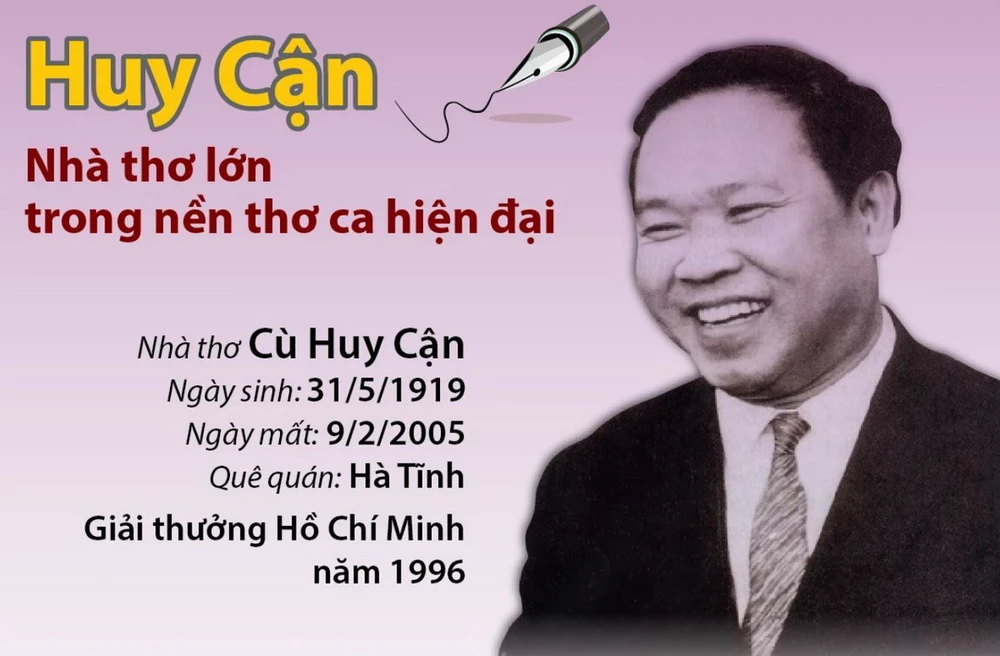
Professor Phong Le believes that poet Huy Can is one of the few people who contributed to shaping the face of New Poetry and Vietnamese poetry in general. He is also an author with a prolific and continuous writing career among the ranks of Vietnamese poets and writers in the 20th century.
Poet Vu Quan Phuong said that right from his first collection of poems “Sacred Fire” published in 1940, poet Huy Can was immediately unanimously honored by poetry lovers as a great talent. Readers quickly became familiar with and familiar with Huy Can’s poetic voice.
Leading name of the New Poetry movement
Poet Huy Can is considered one of the leading names of the New Poetry movement. Poet Huy Can's creative career is divided into two distinct stages. Before August 1945, after publishing his first collection of poems "Sacred Fire" in 1940, Huy Can became one of the leading names of the New Poetry movement (1932-1941) at that time.
Professor Ha Minh Duc believes that poet Huy Can is a “champion” of the New Poetry movement. The duo Xuan Dieu-Huy Can are often considered the most promising pair of artists in New Poetry. Xuan Dieu is youthful, very new in creativity, and rich in poetic ideas. Huy Can is a poetic voice that is calm in ideas, wistful, stirring with joy and sadness in poetry…
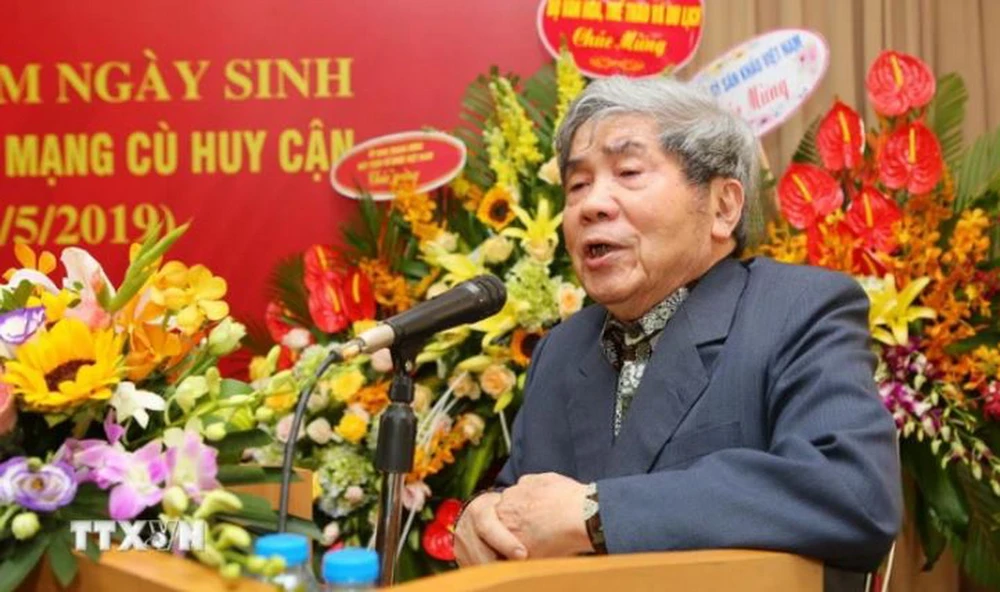
According to researcher and literary theorist Ton Phuong Lan, researchers and critics generally agree in highly appreciating the collection "Sacred Fire" by poet Huy Can, not only before the revolution but also after the revolution. The characteristic of Huy Can's poetry during this period is sadness: immense and full. Theorist and critic Hoai Thanh in his book "Vietnamese Poets" called it "delusional."
The sadness in Huy Can’s “Sacred Fire” has been analyzed by many researchers and considered to be an expression of love for life. “Sadness” is a beautiful sadness, if viewed from an aesthetic perspective, it creates a characteristic of “Sacred Fire” and contributes to diversifying the face of New Poetry.
The second stage was after the success of the August Revolution, poet Huy Can integrated into the joy of an independent and free country. He marked his victorious transition with the poetry collection "The sky brightens every day," published in 1958, until "The land blooms" in 1960, "The poem of life" in 1963... His poetry at this time was no longer quiet, sad and gloomy, but had become close to life, to the workers, bringing the joy of construction and development.
According to literary researcher, Associate Professor, Doctor Luu Khanh Tho, the creative path of poet Huy Can developed over half a century. He is a great author in modern Vietnamese literature with a unique style. Before and after 1945, Huy Can made great contributions to the country's literature. He was one of the most representative poets of the New Poetry movement. After 1945, he was also among the few people at the forefront of revolutionary poetry.
Associate Professor, Doctor Luu Khanh Tho commented that poet Huy Can was present and had great achievements in both the two greatest poetry movements of the century, New Poetry and Revolutionary Poetry. He was one of the most important poets of the New Poetry movement. He was the one who contributed to completing the revolution in poetry, making our poetry from then on have a modern face.
Literary researcher Luu Khanh Tho believes that poet Huy Can is an enthusiastic supporter, protector and ardent admirer of the values of New Poetry. He once affirmed: “With New Poetry, Vietnamese poetry integrates into the modern poetry of the world, into the common era of mankind, but still maintains the Vietnamese character, that character, that identity is not only expressed in language, in poetic genres, but first of all expressed in new emotions, in the soul melody that clearly bears the mark of Vietnam…”.

According to literary researcher Luu Khanh Tho, poet Huy Can is one of the people who succeeded in bringing poetry as a refined and perfected tool to serve the Revolution and the movement of life. Through Huy Can's pen, poetic language is refined, used effectively, and makes a strong impression.
Throughout his life, Huy Can devoted his intellectual and spiritual strength to creating spiritual values, contributing to enriching the nation's cultural traditions. He was the one who contributed to the achievements of Vietnamese poetry on many rich and valuable levels./.
Source: https://www.vietnamplus.vn/huy-can-nha-tho-tieu-bieu-co-dong-cong-lon-cho-van-hoc-nuoc-nha-post956265.vnp


![[Photo] President Luong Cuong attends the 90th Anniversary of Vietnam Militia and Self-Defense Forces](https://vstatic.vietnam.vn/vietnam/resource/IMAGE/2025/3/26/678c7652b6324b29ba069915c5f0fdaf)
![[Photo] Students of the Academy of Posts and Telecommunications visit the editorial office of Nhan Dan Newspaper](https://vstatic.vietnam.vn/vietnam/resource/IMAGE/2025/3/26/51093483a84448ccb39d59333ead674e)
![[Photo] Editor-in-Chief of Nhan Dan Newspaper Le Quoc Minh receives Iranian Ambassador Ali Akbar Nazari](https://vstatic.vietnam.vn/vietnam/resource/IMAGE/2025/3/26/269ebdab536444818728656f8e3ba653)

![[Photo] Prime Minister Pham Minh Chinh attends the launching ceremony of the "Digital Literacy for All" Movement](https://vstatic.vietnam.vn/vietnam/resource/IMAGE/2025/3/26/a58cb8d1bc424828919805bc30e8c348)
![[Photo] General Secretary To Lam receives Singaporean Prime Minister Lawrence Wong](https://vstatic.vietnam.vn/vietnam/resource/IMAGE/2025/3/26/4bc6a8b08fcc4cb78cf30928f6bd979e)
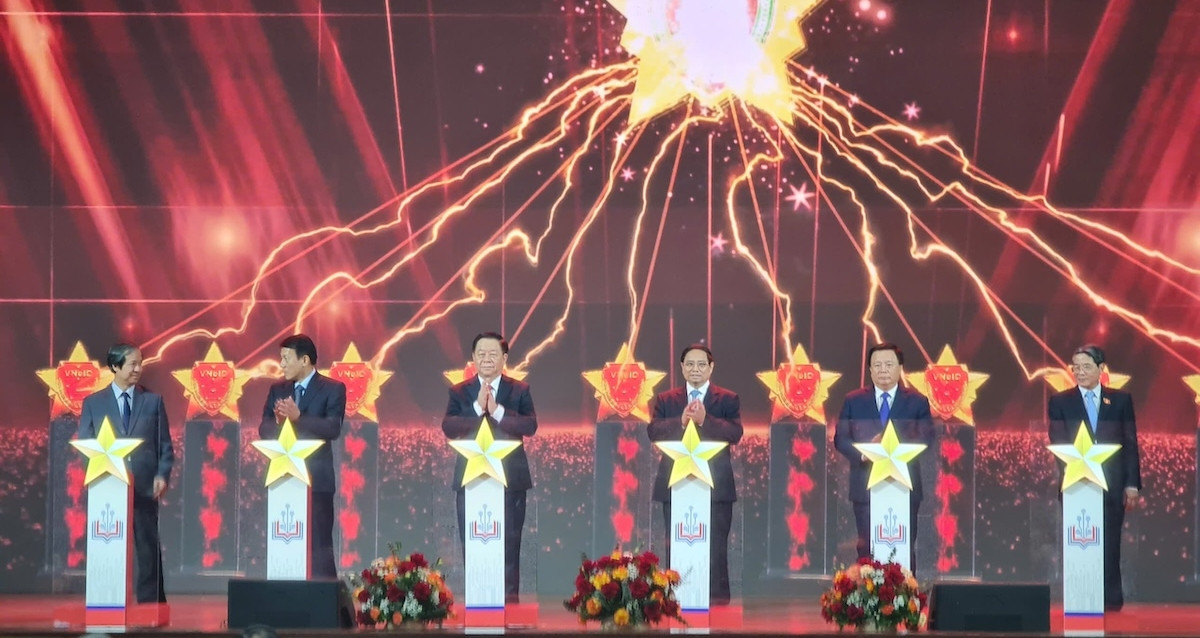

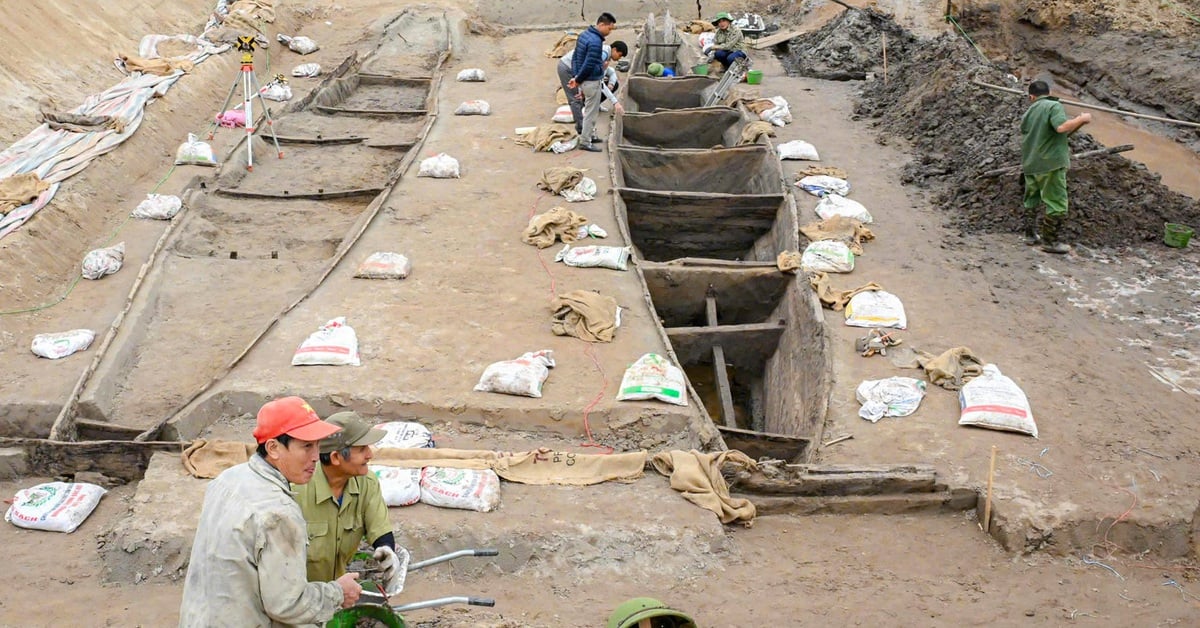

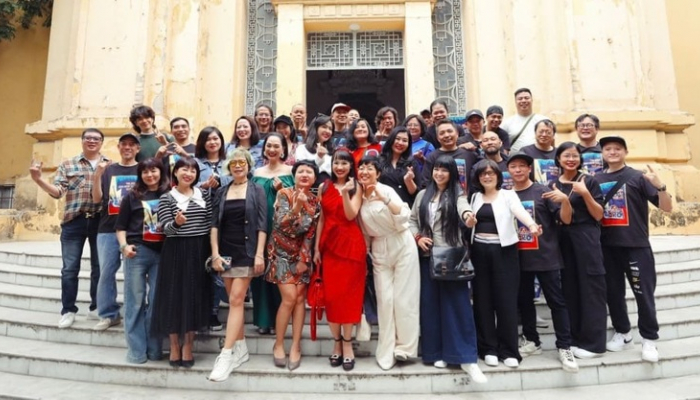





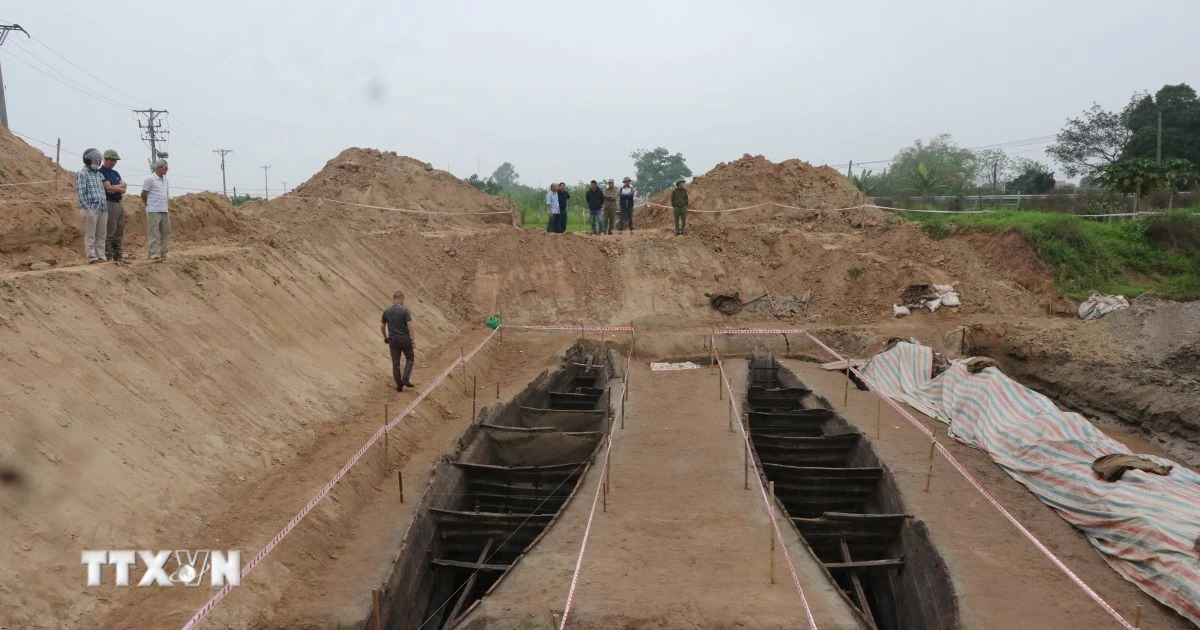

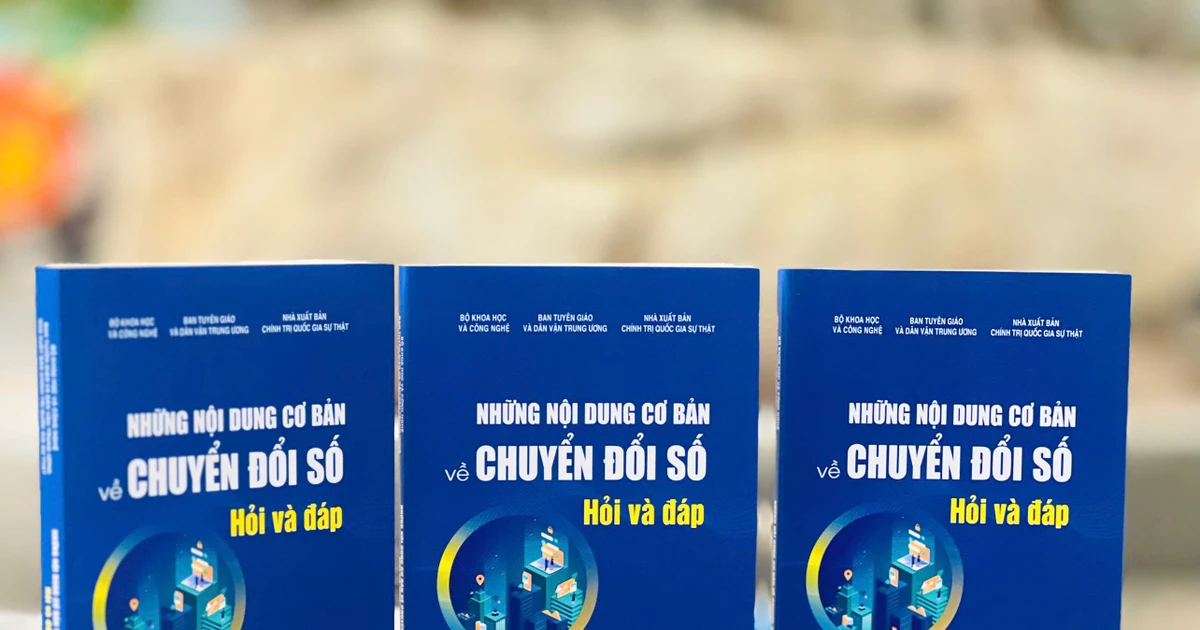
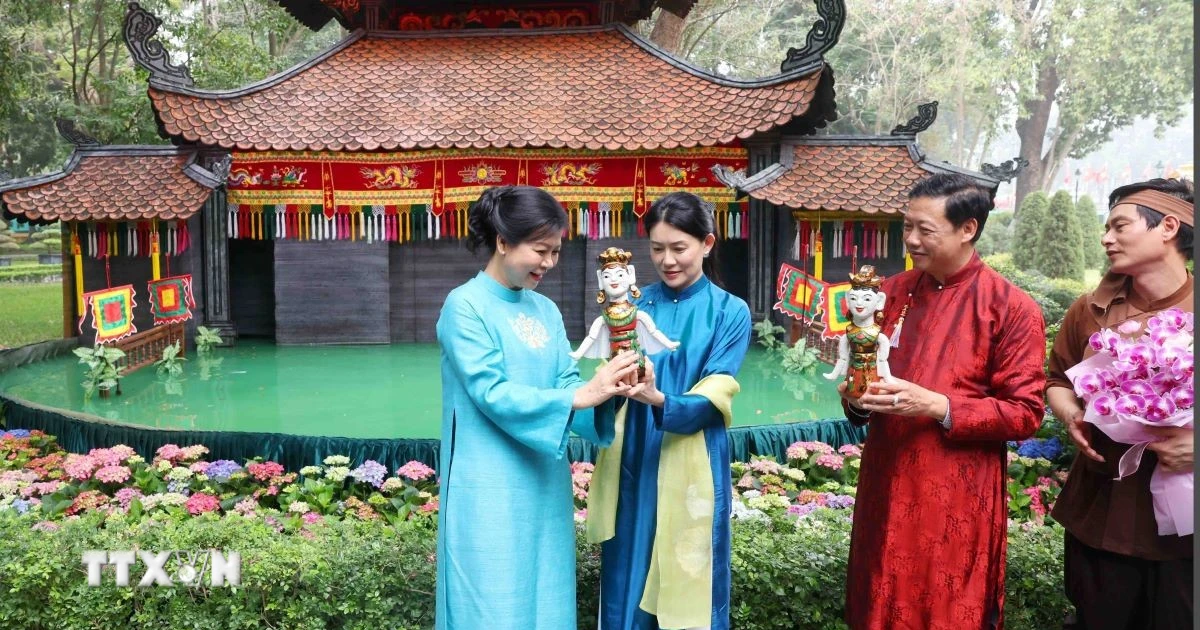
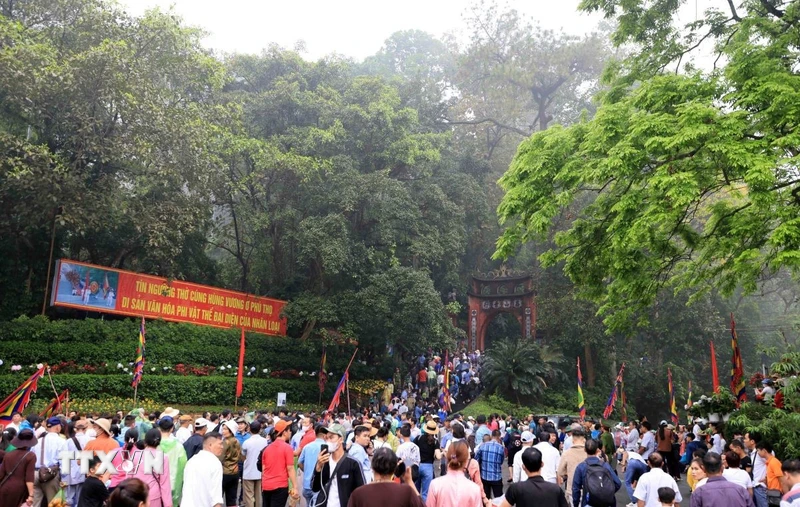
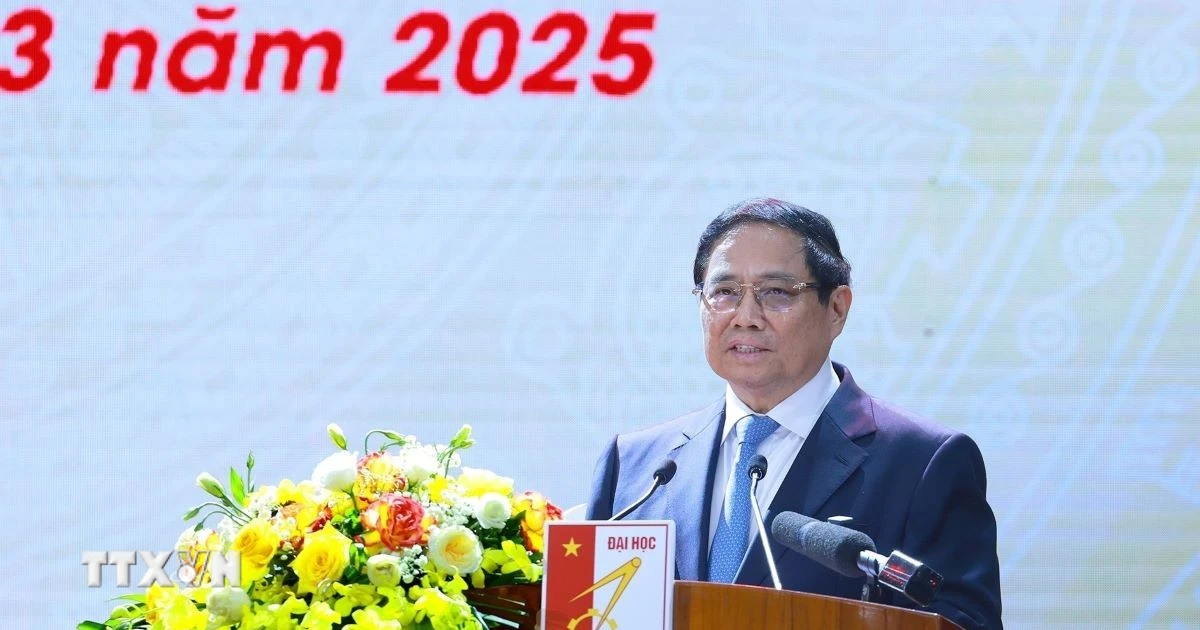
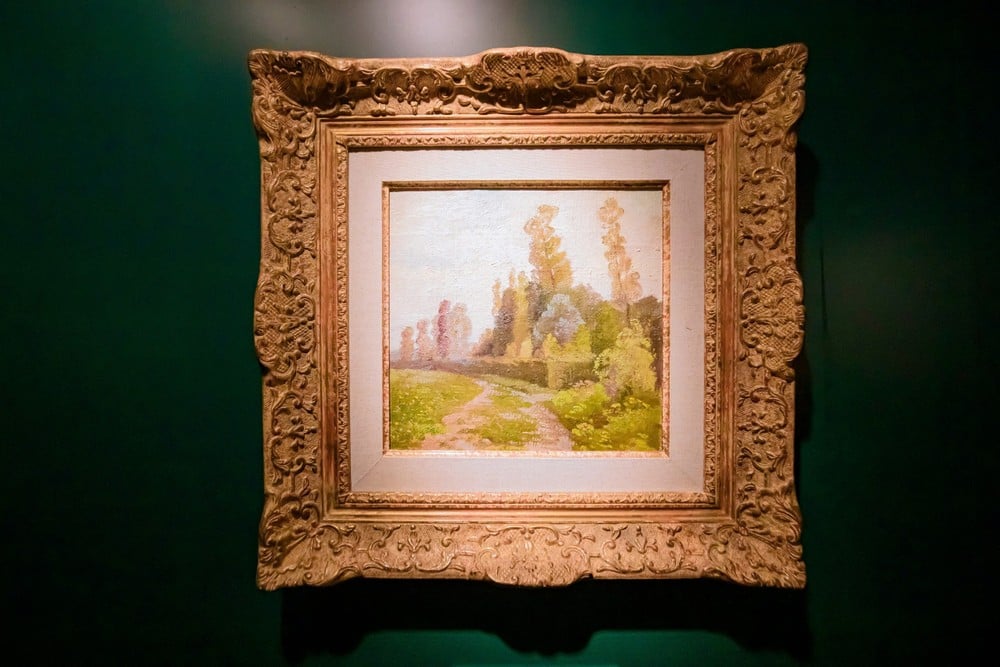

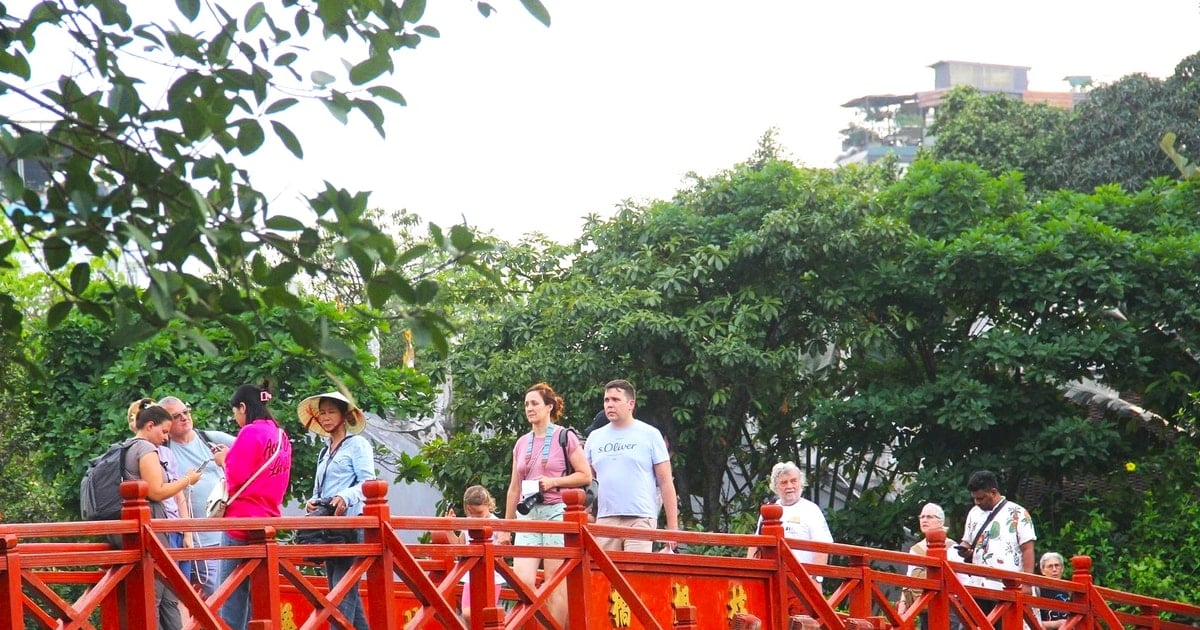



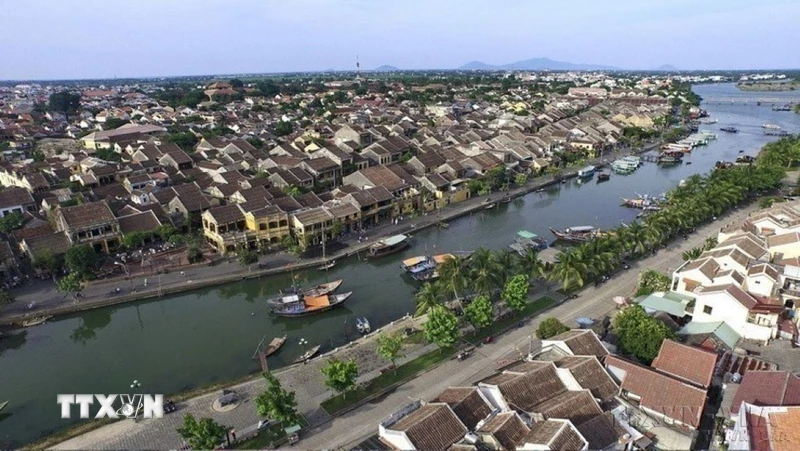


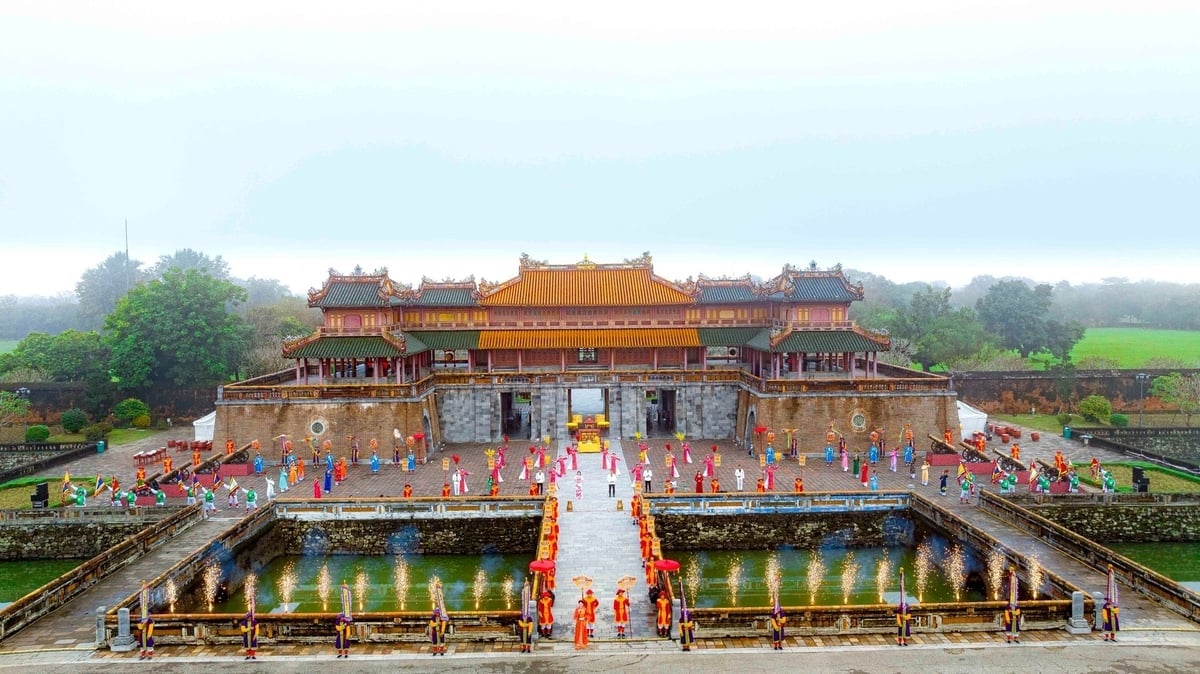

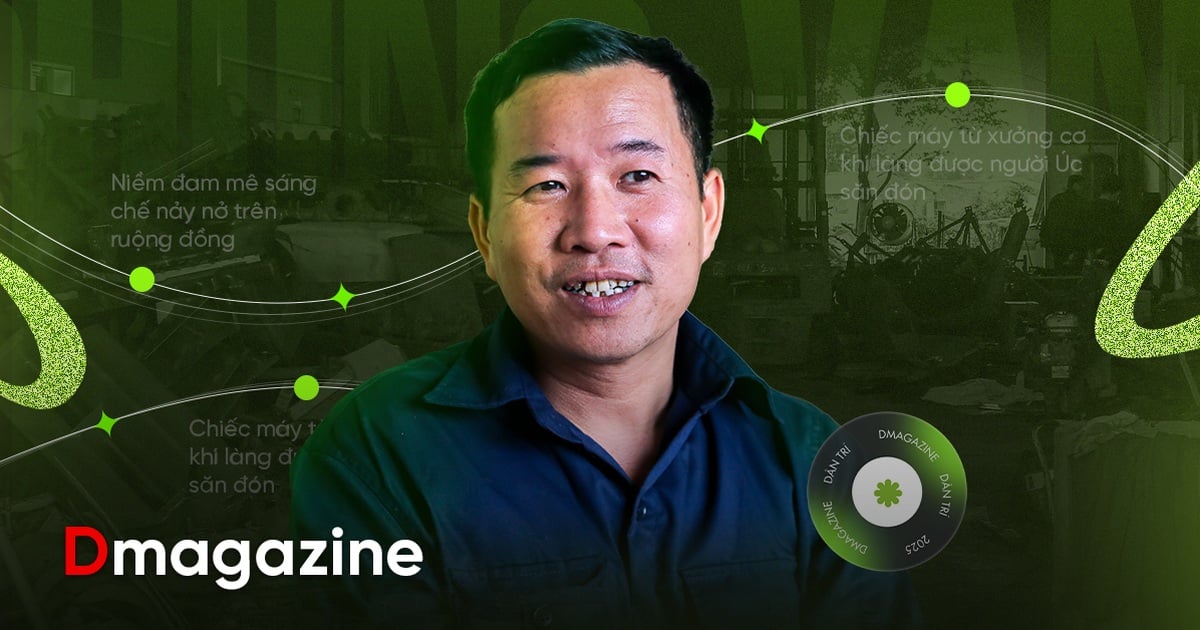

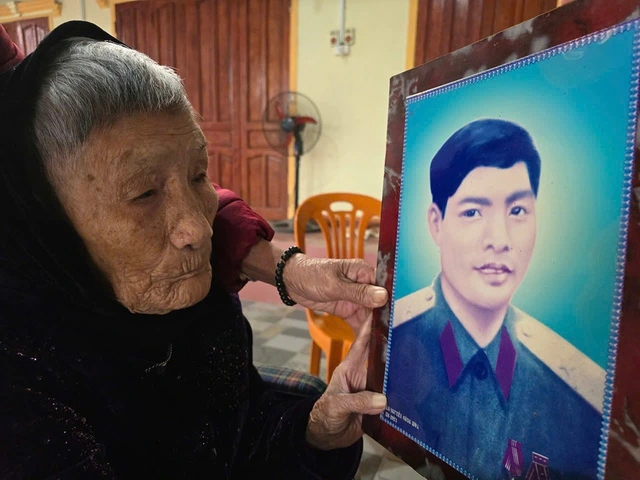

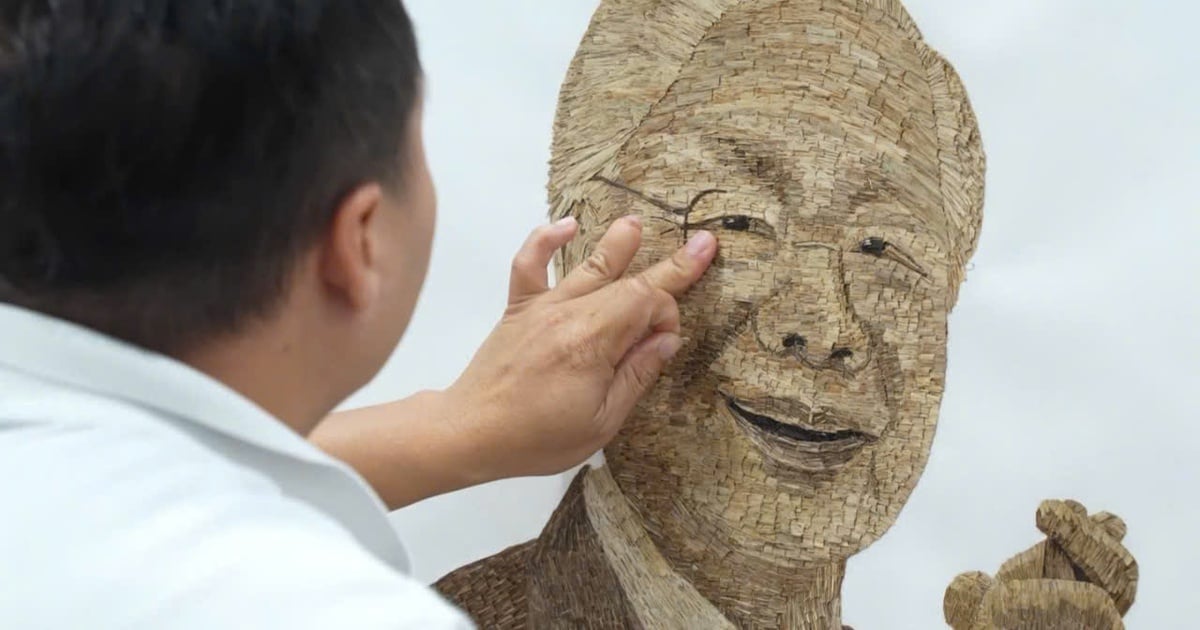
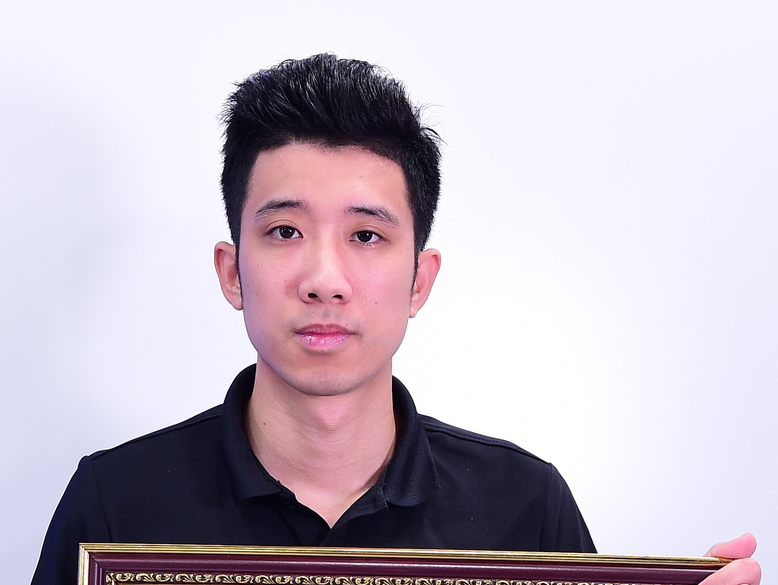
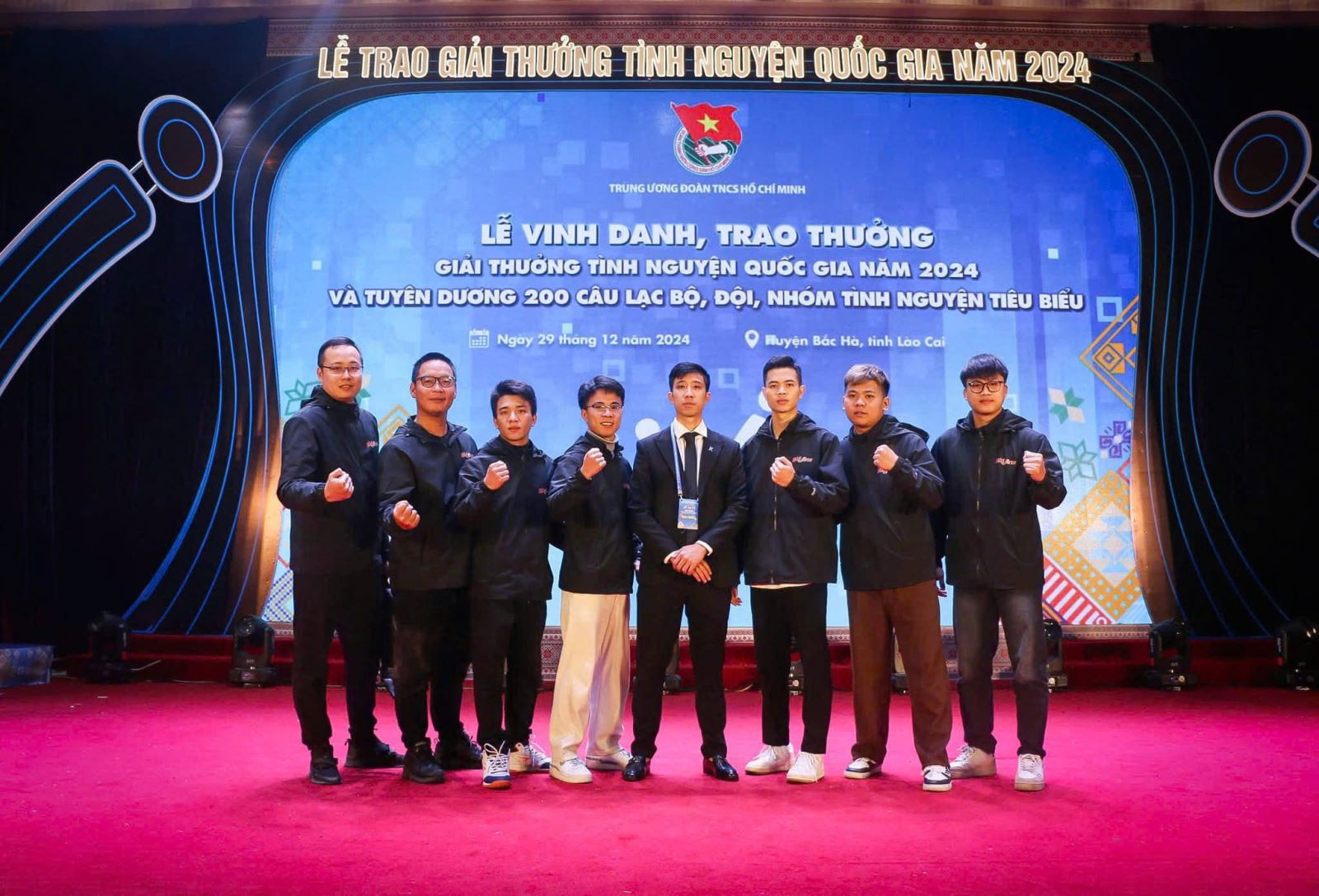










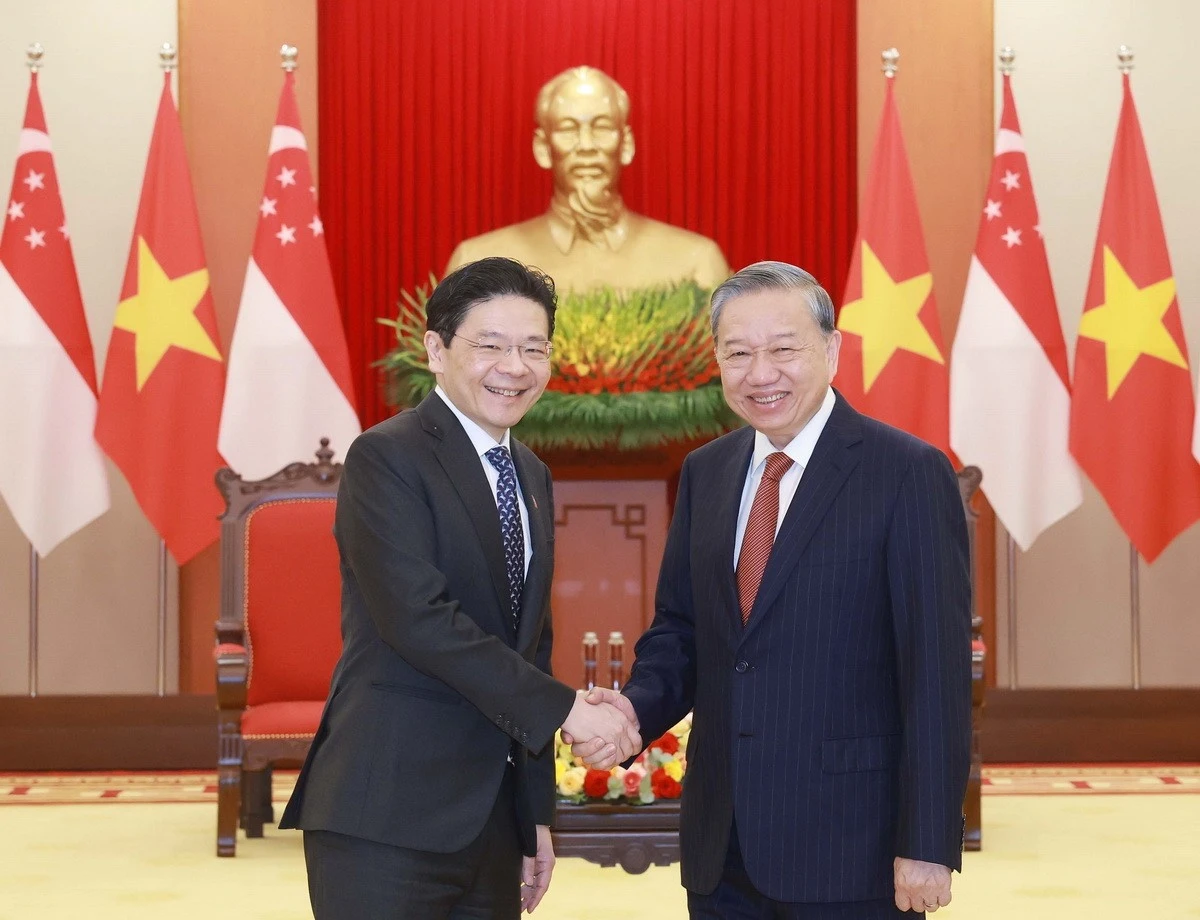
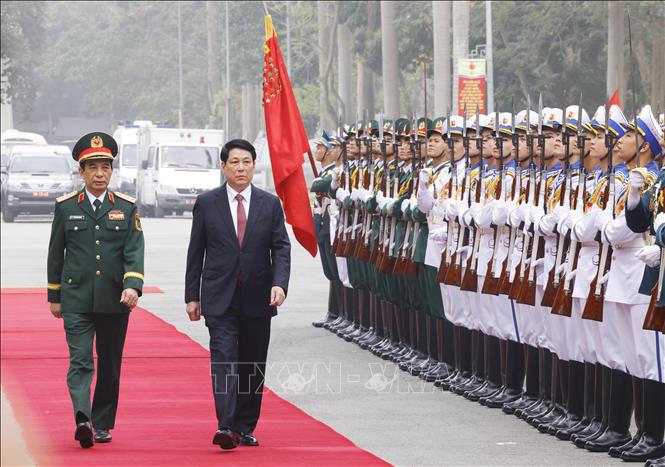
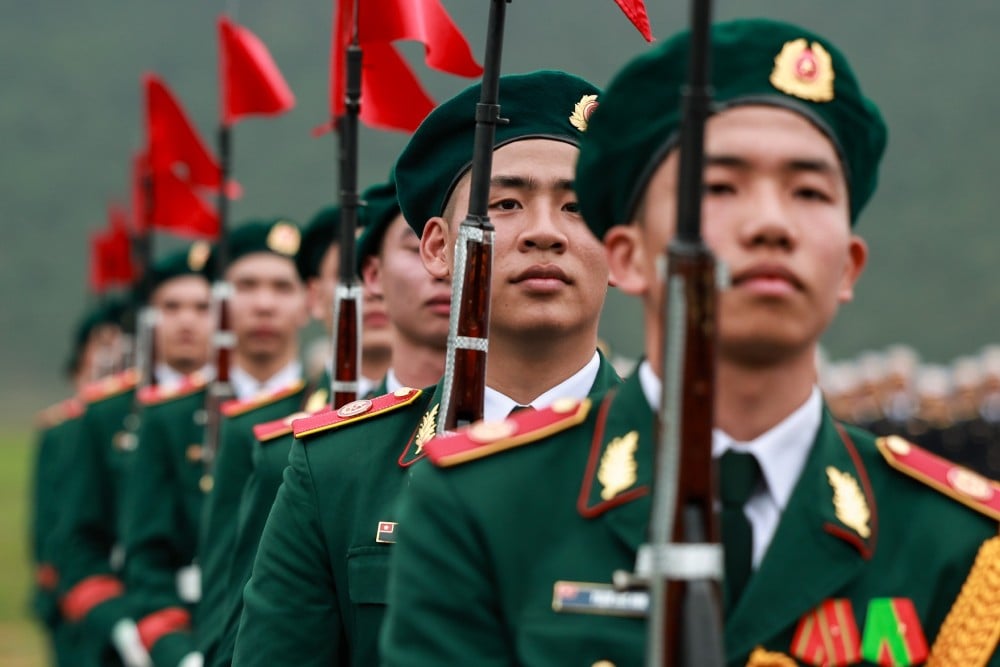
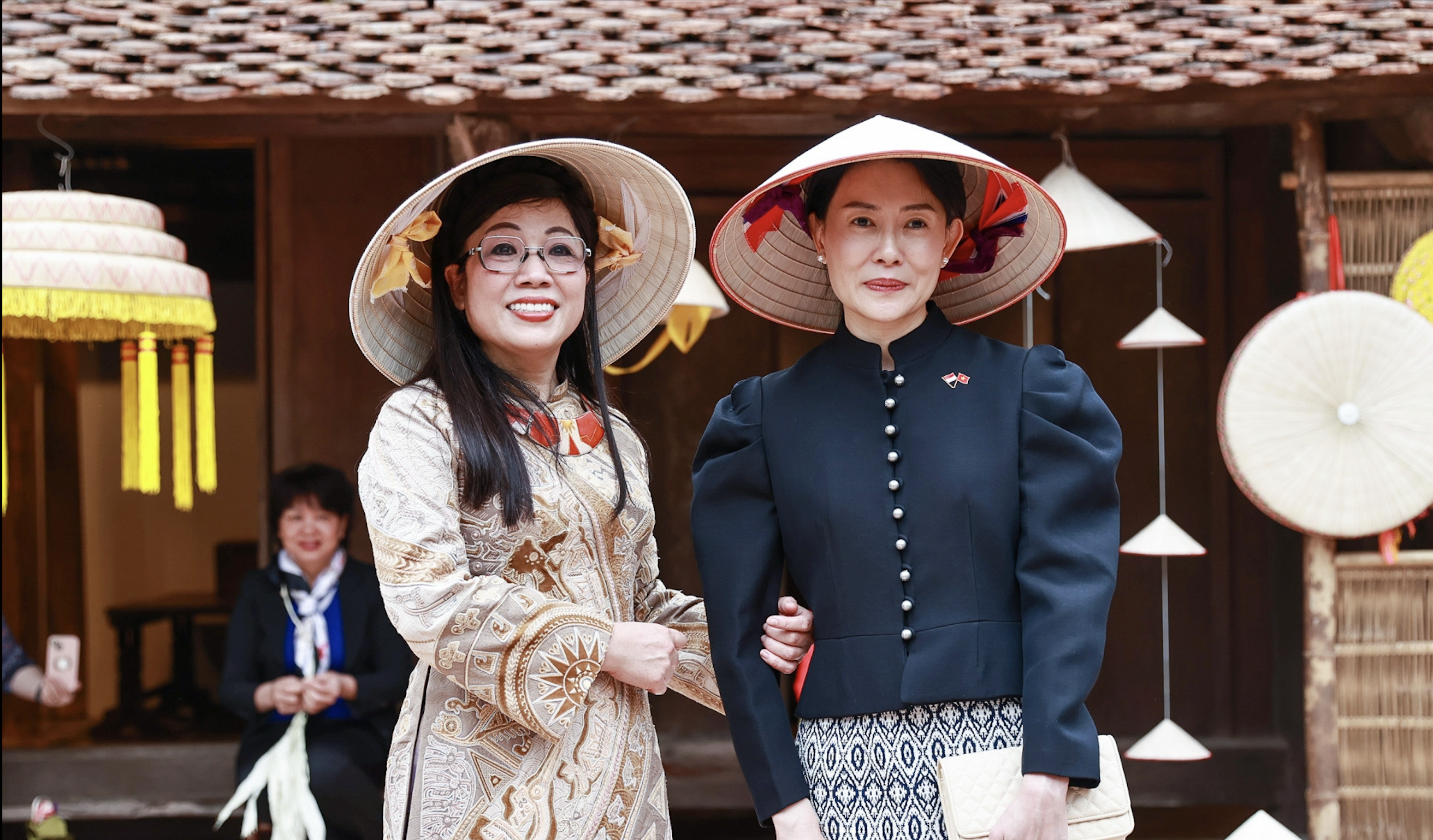

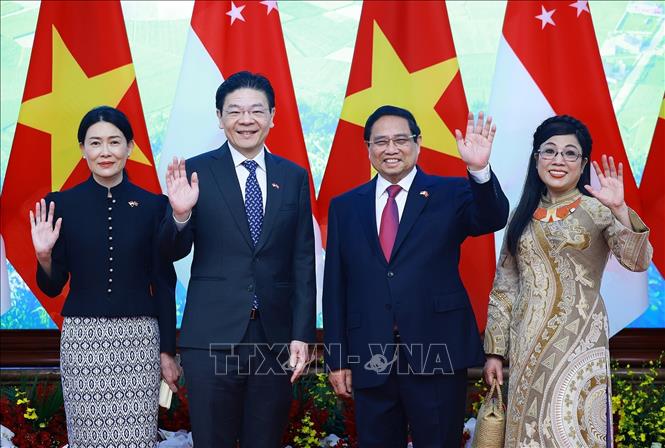
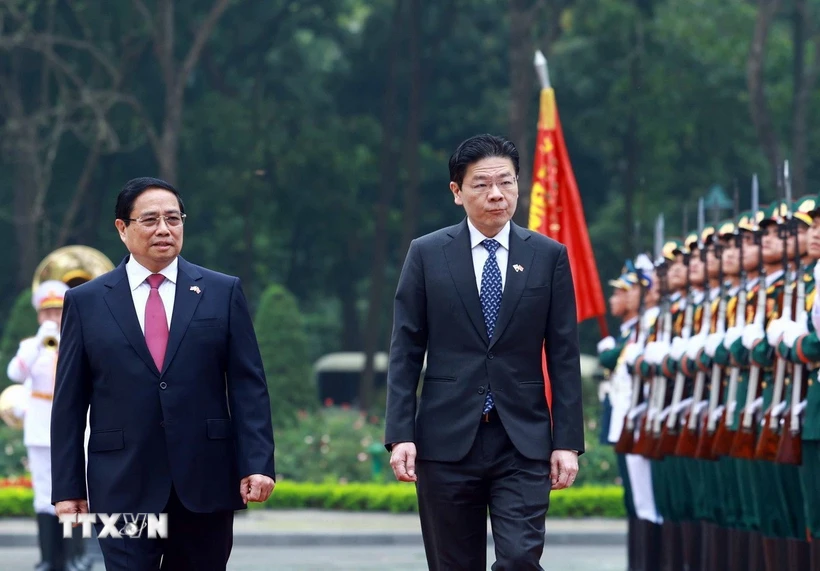


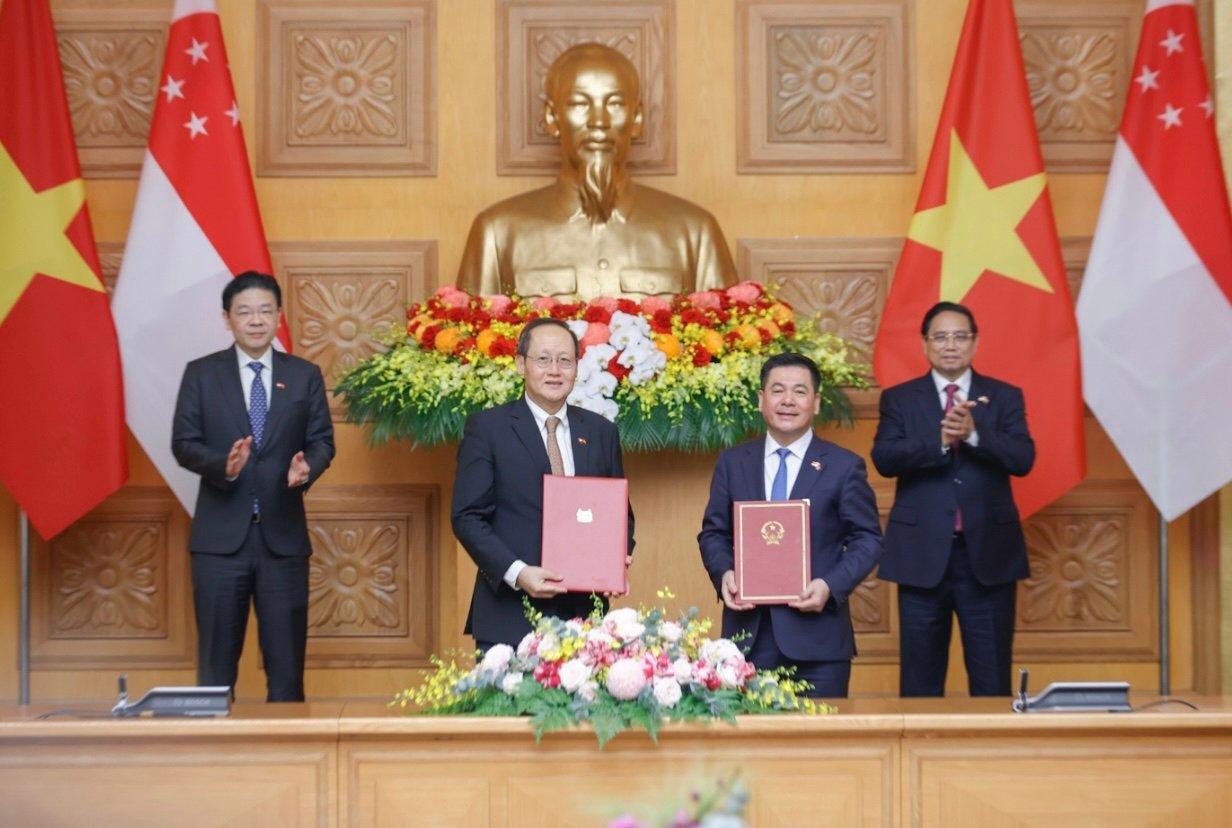

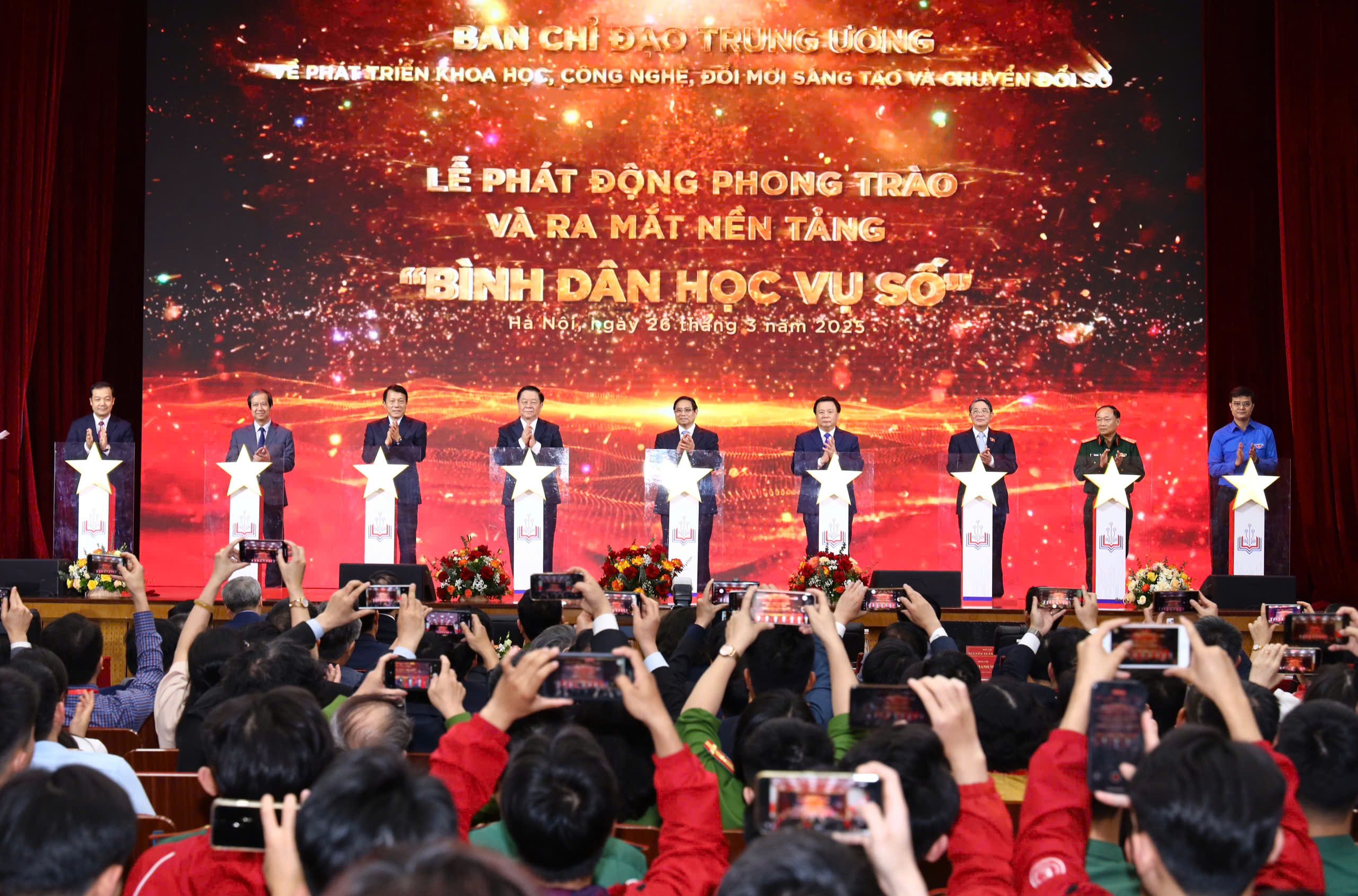

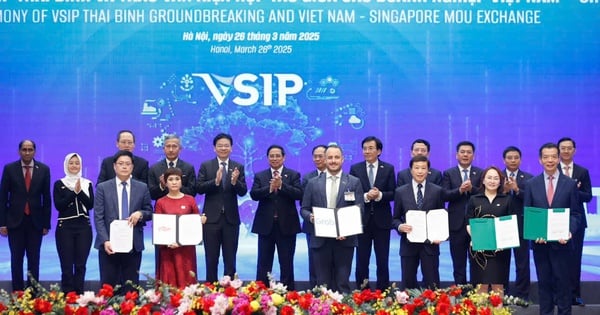

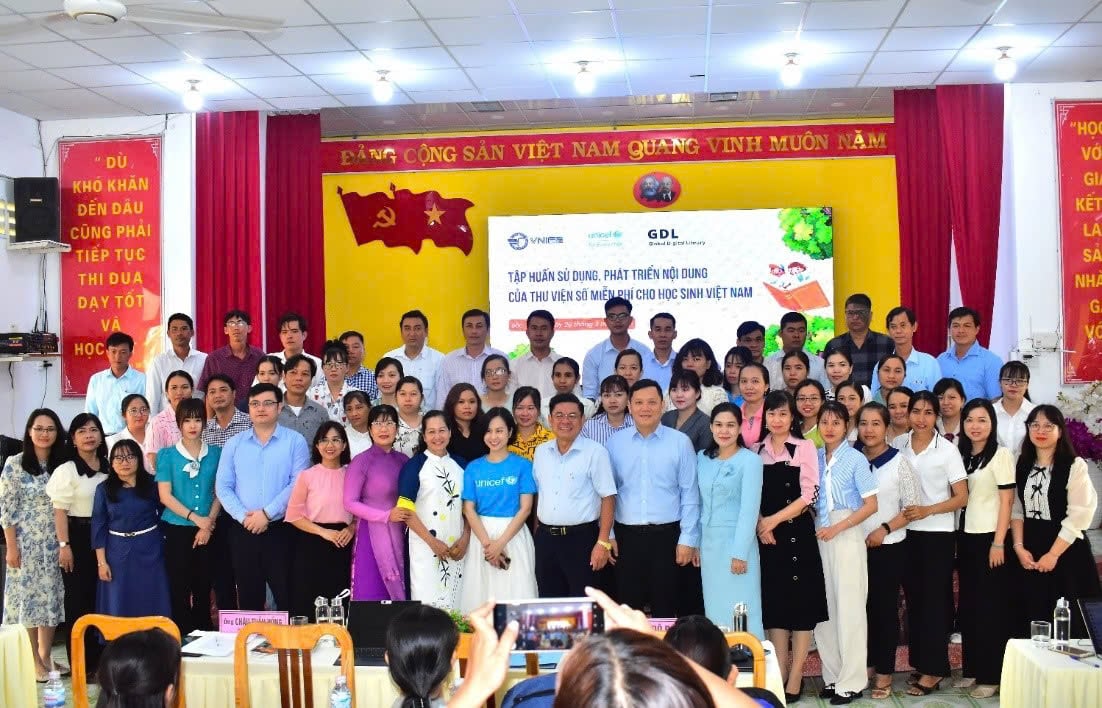



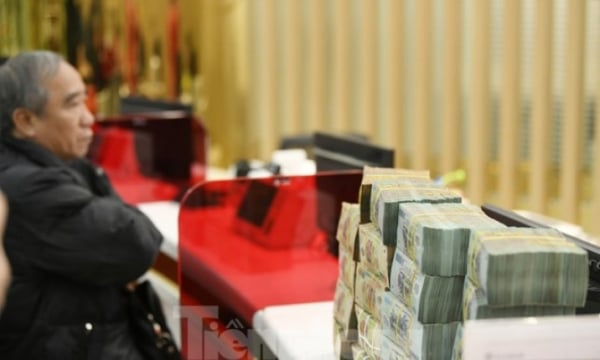
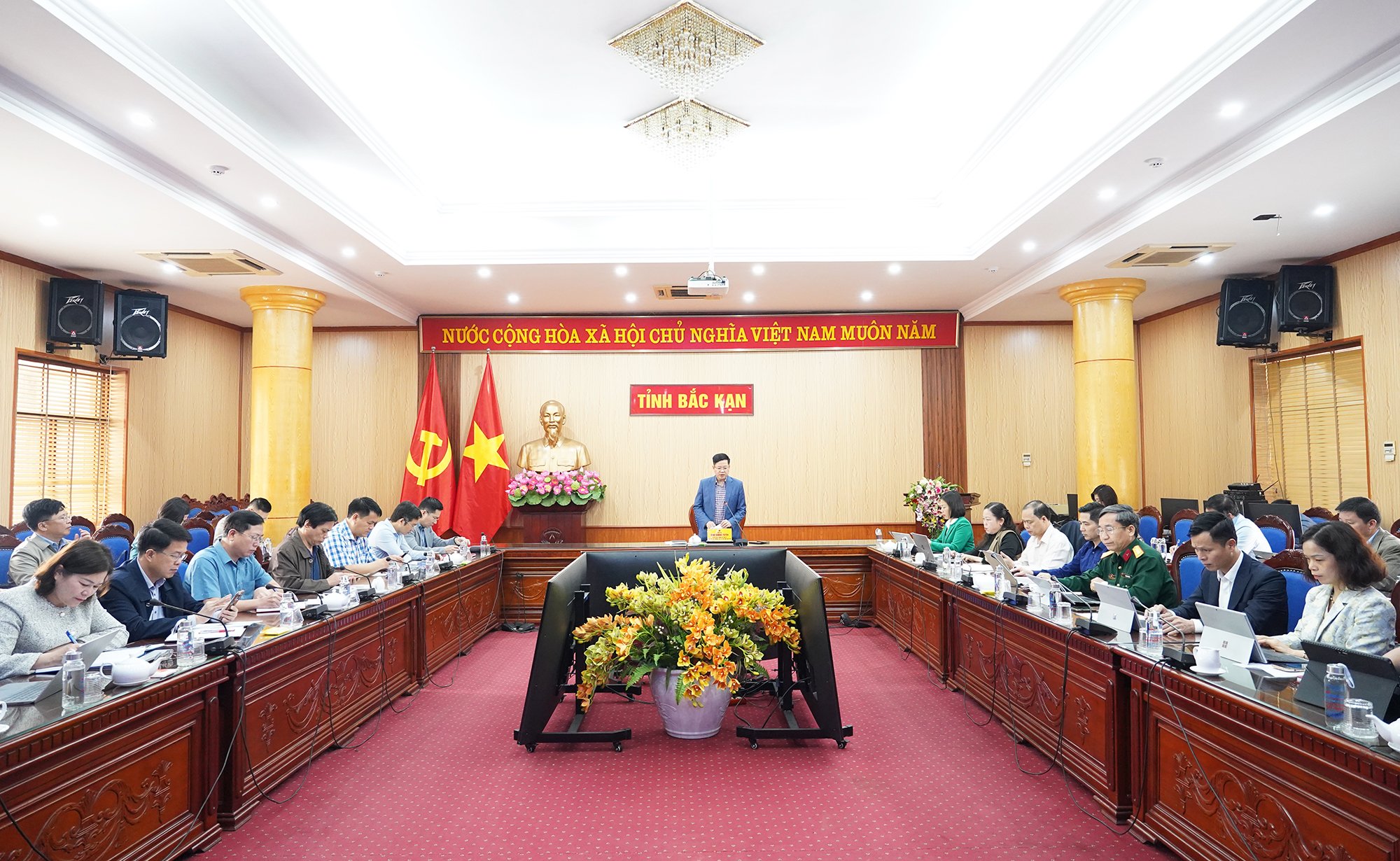
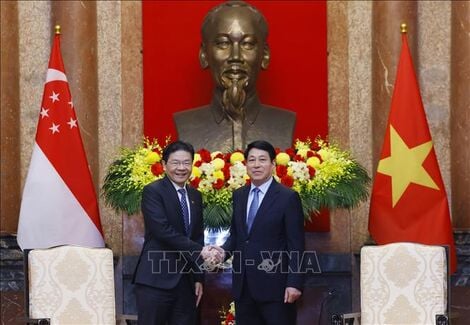
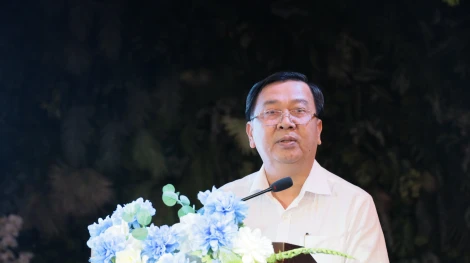


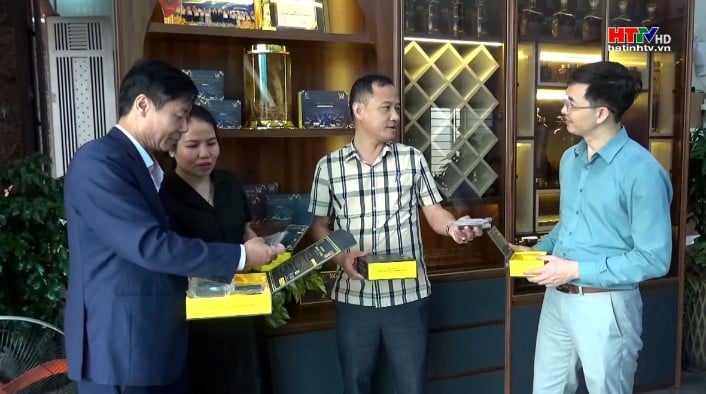
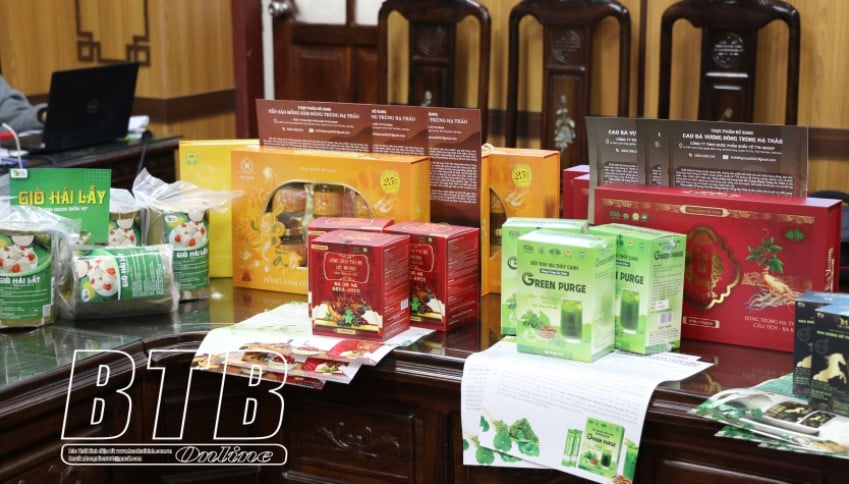

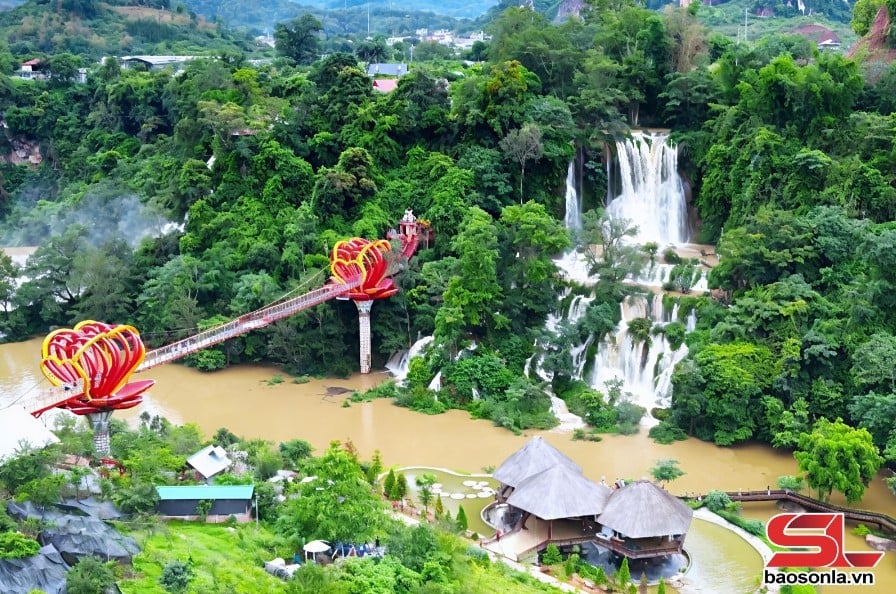



Comment (0)